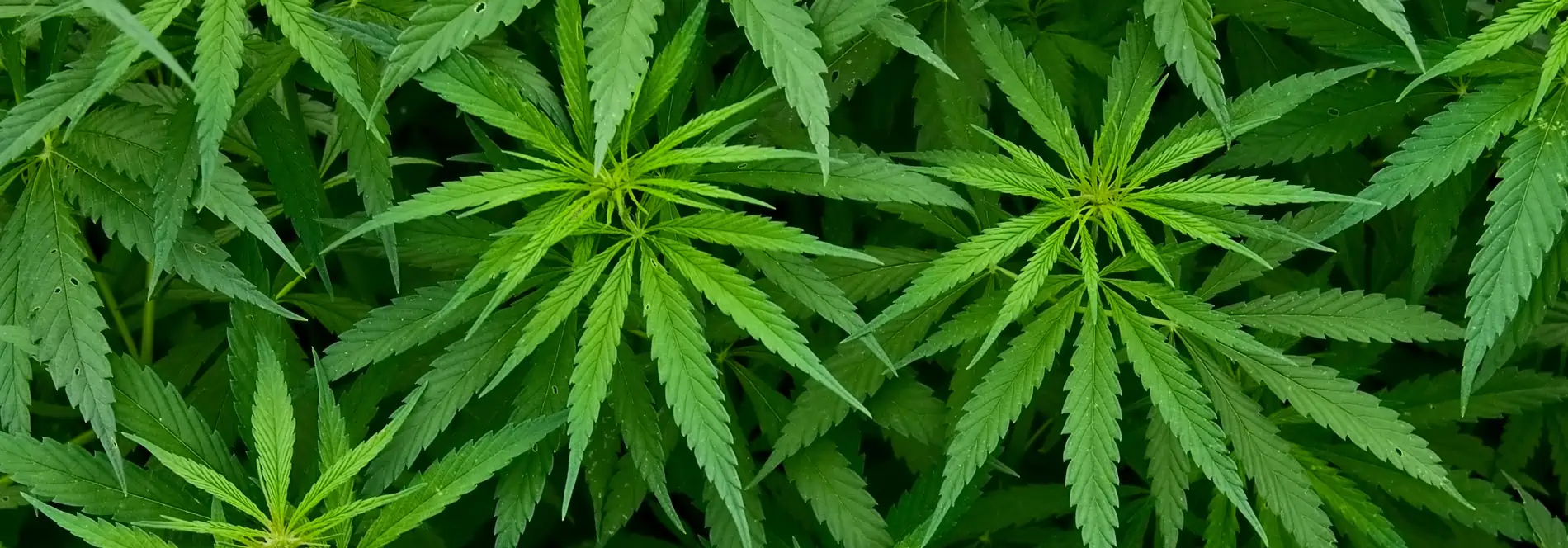Marijuana Addiction

Victory Over Marijuana Abuse
Overview
Marijuana is generally smoked or consumed in an edible form. It can be a complicated substance to give up due to its increasing social acceptance and popularity becoming similar to alcohol. People who regularly use the drug claim it is harmless, but marijuana addiction is possible.
Friends and family members may not initially view their loved one’s marijuana usage as addictive, adding to the challenge of knowing when to intervene. Also, regular users of marijuana can function at a higher level than someone addicted to other drugs such as heroin or methamphetamines. However, this level of function does not mean there is no dependence.
Substance Use Disorders
Marijuana’s Effects on the Brain
Eighty-five known cannabinoids are in the cannabis plant from which marijuana is derived. The brain's natural cannabinoid receptors are part of the endocannabinoid system, which plays a vital role in normal brain development and function. Two prominent marijuana cannabinoids are tetrahydrocannabinol (THC) and cannabidiol (CBD).
The THC chemical is responsible for most of marijuana's psychological effects, as well as its "high." It attaches directly to a specific cannabinoid receptor and appears like a naturally occurring brain chemical.
Marijuana's THC affects short-term memory, pleasurable sensation, attention span, motor coordination, thought process, and the ability to perceive time accurately. As the amounts of THC increase to a high and over-activate the body's endocannabinoid system, so does the chance of a user becoming addicted.
Other effects of marijuana abuse include:
- Altered perceptions and mood
- Impaired coordination
- Difficulty thinking
- Challenges with solving problems
- Disrupted learning
- Difficulty with recollection
- Decreased appetite
- Intense paranoia
- Delusions
- Psychotic behaviors
Marijuana Addiction: Risk factors
Adolescent marijuana use increases the chances of addiction later on as the individual needs to use more of it to achieve the same experience. Younger users generally have less academic success and are at a higher risk of dropping out of school than classmates who do not use marijuana.
Heavy users report lower levels of satisfaction in various dimensions of life. In addition to declines in mental and physical health, people who misuse marijuana suffer more relationship problems. Workplace studies indicate lower career success due to job turnover, tardiness, and absences. More workplace accidents also lead to a more significant number of workers’ compensation claims.
Signs of Marijuana Abuse
People who are misusing marijuana may demonstrate:
- Little regard for consequences
- Pre-occupation to using
- Lessening desire for social interaction
- Hoarding tendencies
- Misappropriating money
- Cutting back on work
- Loss of interest in hobbies
- Risk-taking while under the influence
- Failed attempts to stop
- Using marijuana daily or several times per day
Someone experiencing marijuana addiction isn’t a weak or flawed person. Their disease responds to professional treatment. It’s essential for everyone struggling with addiction to know that recovery is possible.
Other Marijuana Addiction Withdrawal Symptoms
Additional symptoms of marijuana abuse beyond sleep disturbances include:
- Increased irritability
- Mood swings
- Inability to feel pleasure
- Anxiety
- Physical cravings
- Depression
- Restlessness
- Agitation
- Extreme fatigue
- Reduced appetite
- Weight loss
Treatment Modalities
Some people use marijuana as a way to treat undiagnosed mental disorders. At Headwaters, our comprehensive treatment plan for people recovering from accompanying co-occurring conditions includes:
- Evidence-based therapies
- Cognitive-behavioral therapy
- Motivational interviewing
- Medical care
- Psychiatric services
- Case management services
- Family education and programming
- Life skills training
- Spiritual support

Contact Headwaters
Headwaters multidisciplinary team of professionals includes physicians, psychiatrists, psychologists, master’s level clinicians, and others. We are committed to developing a personalized, comprehensive, achievable plan of recovery that aligns with your demanding lifestyle.
Today is the day to you break the cycle of marijuana addiction. We are helping clients achieve lifelong, sustainable, and complete recovery. Our team provides cutting-edge care that enacts real, lasting change for our clients by assisting them to lead healthier, more confident, and more purposeful lives.
Call Headwaters now at 561-270-1753.
West Palm Beach, FL 33407
Follow Us On:

